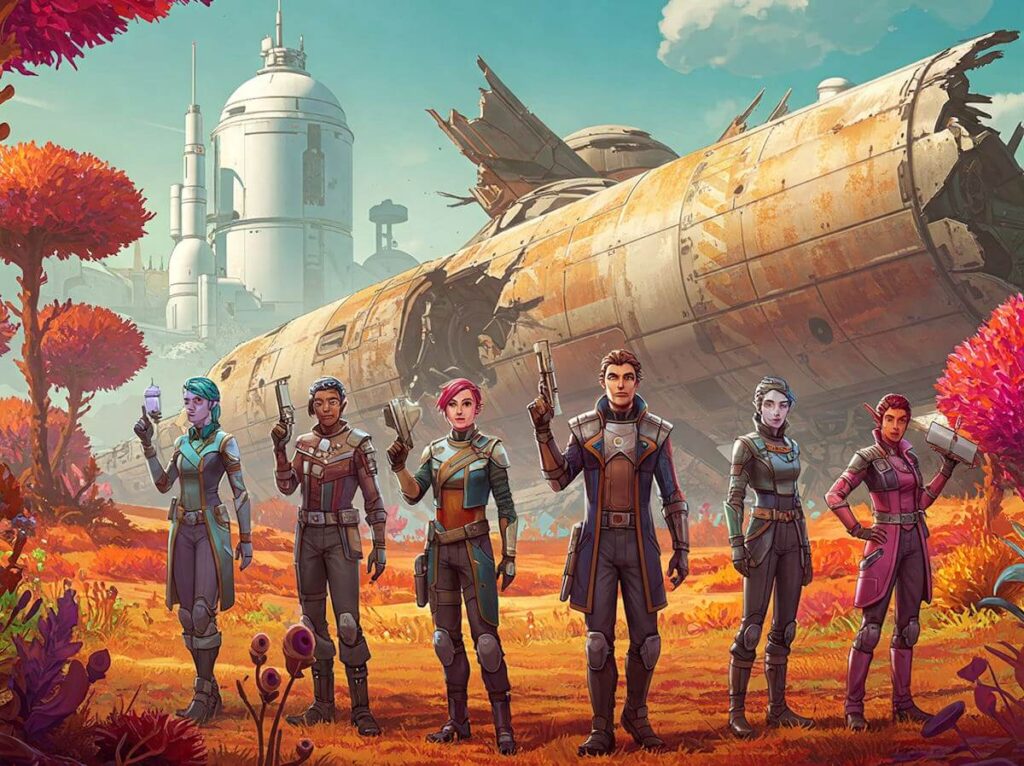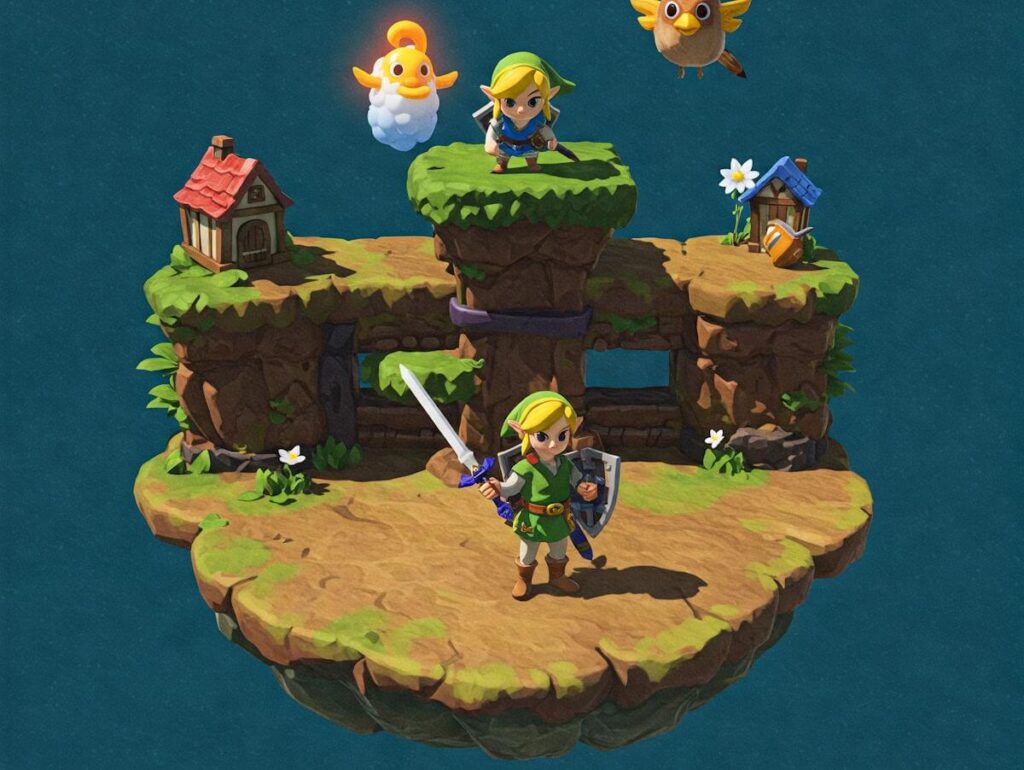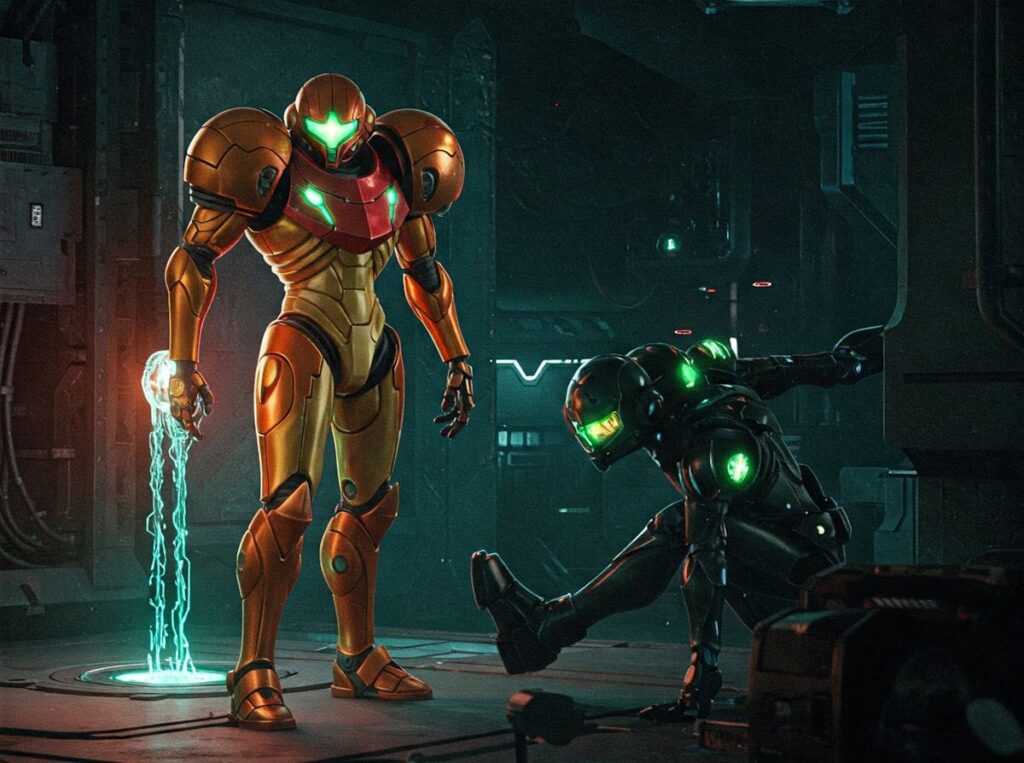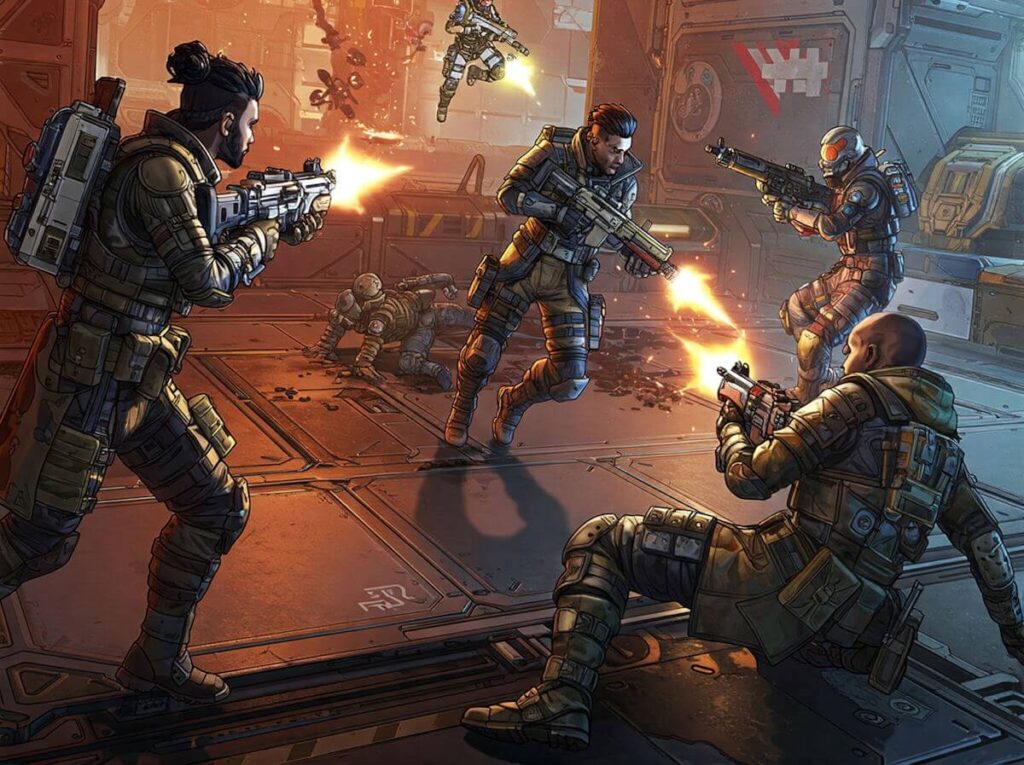Role-Playing Games (RPGs) are known for their immersive storytelling, character development, and expansive worlds, all of which have become synonymous with the genre. Over the years, certain RPG tropes have emerged, creating a foundation that both developers and players have come to expect. These conventions often define the structure and gameplay mechanics of traditional RPGs.
One prevalent trope is the hero’s journey, where players typically assume the role of a reluctant hero destined to embark on an epic quest. This narrative arc not only fosters player engagement but also establishes a clear motivation for character decisions and actions. Alongside this, the “good vs. evil” dichotomy frequently guides moral choices, leading characters to either become virtuous champions or nefarious villains. The presence of classes and leveling systems serves as another cornerstone of RPG design, allowing players to customize their characters’ abilities and modify gameplay experiences based on their chosen path.
Another common trope is the presence of sprawling, open worlds filled with quests and non-playable characters (NPCs). These environments encourage exploration and interaction, promoting a sense of agency within the gaming experience. Quest-driven narratives often provide players with side missions to enhance character development and world-building. Additionally, the concept of a party system, where players can form groups with different characters, adds layers to both strategy and storytelling.
Understanding these RPG tropes helps to set player expectations in terms of gameplay and narrative progression. However, as the genre continues to evolve, some games have begun to challenge these conventions, prompting discussions around innovation and experimentation. ‘The Outer Worlds’ is one such title that epitomizes this departure from established norms, paving the way for a fresh take on role-playing experiences.
The Open World vs. Linear Gameplay
Role-playing games (RPGs) have long been characterized by their expansive worlds and numerous side quests, allowing players to engage in a seemingly endless array of activities. Traditional RPGs often present vast environments teeming with opportunities for exploration and discovery. This format, although engaging, can sometimes lead to player overwhelm, as they must navigate a multitude of choices that can detract from the core narrative experience. In contrast, ‘The Outer Worlds’ redefines this paradigm by offering a gameplay structure that skillfully blends elements of open-world exploration with a more linear narrative framework.
In ‘The Outer Worlds,’ players are placed in a vibrant universe with multiple planets to explore, yet the game actively encourages a focused approach to gameplay. Rather than being burdened with an excessive number of side quests or distractions, players are invited to go on meaningful adventures that contribute directly to their understanding of the story and character development. This methodology preserves the essence of exploration that is crucial to RPG experiences while honing in on storytelling. As players move through the game, they encounter pivotal decisions that affect the narrative, ensuring that choices feel significant, rather than trivial.
The balance established in ‘The Outer Worlds’ effectively enhances player agency while maintaining narrative cohesion. This approach mitigates the traditional RPG challenge of prioritizing numerous quests over the core storyline. By allowing players the freedom to explore without diluting the thematic integrity, the game invites participants to engage deeply with its world and characters. Thus, ‘The Outer Worlds’ not only challenges the expectation of traditional RPGs but also demonstrates the potential for more focused gameplay mechanics to enrich the overall player experience.
Character Customization and Development
Character customization is a hallmark of traditional role-playing games (RPGs), offering players intricate systems to create avatars that often reflect their own preferences and identities. This complexity can empower players, allowing for extensive alterations in looks, skills, and abilities. However, these extensive customization options can sometimes lead to analysis paralysis, where players may feel overwhelmed by the sheer volume of choices. ‘The Outer Worlds’ approaches character creation by simplifying this process while still maintaining the flexibility needed for diverse character builds.
In ‘The Outer Worlds’, players are introduced to a streamlined customization system that allows for efficient selection of attributes and skills without inundating them with excessive options. This game provides a straightforward interface for choosing character traits and backgrounds, allowing new players to engage with the process without feeling daunted. Players can make informed decisions that affect not only their gameplay mechanics but also the narrative journey of their characters. The introduction of unique traits adds another layer of depth to character customization, enabling players to craft distinctive personalities and playstyles. This thoughtful integration of character development fosters a connection between the player and their avatar.
Moreover, the game emphasizes narrative-driven choices over mechanical complexity, highlighting the importance of character interaction within the game’s rich story. Dialogues and quests are influenced by the player’s character traits and development, establishing a seamless link between customization and narrative outcomes. While traditional RPGs often prioritize technical prowess with myriad character builds, ‘The Outer Worlds’ exemplifies how to create a memorable experience through storytelling. This approach allows players to prioritize personal engagement and character identity, enriching their adventure in a way that appeals to both seasoned RPG enthusiasts and newcomers alike.
Morality and Player Choices
In traditional role-playing games (RPGs), decisions made by players often fall into clear categories of right and wrong, simplifying moral complexities into an easily digestible format. This binary approach tends to limit the depth of storytelling and player engagement, reducing characters and narratives to mere archetypes. However, The Outer Worlds innovatively challenges this norm by introducing a more intricate morality system that encourages players to navigate a landscape filled with ethical ambiguities.
Players in The Outer Worlds are faced with dilemmas that prompt them to evaluate their values and the consequences of their choices deeply. Unlike many RPGs where the outcomes of decisions lead to unequivocal rewards or penalties, the game presents scenarios that compel players to consider multiple perspectives. This results in a more organic interaction with the narrative, where each choice has the potential to yield unpredictable repercussions that shape the world around them.
For instance, players may be tasked with deciding whether to aid a group of workers in their fight against corporate exploitation or to support the powerful elite that controls the colony’s resources. Both choices come with significant moral weight and complex consequences. This design elevates character development beyond superficial reputation systems—allowing for personal growth that aligns with the player’s chosen moral compass. Thus, actions in The Outer Worlds cultivate an emotional response, as players are forced to reconcile their personal ethics with the realities presented in the game.
This nuanced approach to morality not only invites players to engage more profoundly with the story but also encourages reflection on their own values as they make choices that do not simply lead to good or evil outcomes. By fostering this environment, The Outer Worlds effectively redefines the player experience, positioning morality as a spectrum rather than a straightforward path. This evolution in RPG design illustrates a deeper understanding of human ethics, ultimately enriching the narrative journey for all players involved.
Humor and Tone in Storytelling
Traditional role-playing games (RPGs) often immerse players in serious narratives characterized by epic quests, grandiose battles, and weighty storytelling. These games tend to focus on themes of heroism, morality, and the struggle between good and evil, frequently engaging players in profound, life-altering decisions. However, “The Outer Worlds” dares to diverge from these typical conventions by adopting a distinctly humorous and satirical tone. This innovative approach not only entertains but also delivers a critical commentary on contemporary societal issues, notably capitalism and corporate culture.
The game masterfully interjects humor into its narrative, utilizing clever dialogue, exaggerated character traits, and absurd scenarios to alleviate the often dour atmosphere associated with traditional RPGs. Characters found throughout “The Outer Worlds” are intentionally designed to reflect the archetypal corporate employee—overzealous, somewhat oblivious, yet comically flawed. Such portrayals invite players to laugh while also prompting them to reflect critically on the societies they inhabit in-game and in real life. Through this lens, the game explores themes of individual agency versus corporate control, ultimately questioning the validity of success predicated on capitalistic values.
Moreover, the satirical elements in “The Outer Worlds” manifest through gameplay and quest design. For instance, players encounter quests that parody typical missions found in other RPGs, using humor to subvert player expectations. These unexpected twists not only create memorable experiences but also allow the game to address pertinent issues—such as consumerism and ethical dilemmas in business—without overshadowing the enjoyable gameplay. Thus, the incorporation of humor does not detract from the narrative depth, but rather enhances player engagement by juxtaposing the hilarious with the thought-provoking.
Quest Design and Structure
Traditional role-playing games (RPGs) often rely on familiar quest structures, which include fetch quests, grinding missions, and combat-heavy objectives. These quest types frequently lead to predictable gameplay patterns that can detract from the immersive experience intended by developers. However, The Outer Worlds diverges from these conventional frameworks, redefining how quests are designed and experienced. Instead of offering repetitive tasks, the game emphasizes character-driven narratives that create deeper engagement with the story and its inhabitants.
In The Outer Worlds, quests are crafted to encourage meaningful interactions and player choices. Each mission unfolds through intricate storytelling, with a focus on character relationships and the consequences of decisions made throughout the journey. Players are often confronted with moral dilemmas that require them to weigh their options, resulting in unique outcomes that enhance the overall gaming experience. This commitment to narrative depth is a stark contrast to traditional fetch quests, which typically lack meaningful context and can feel like mere busywork.
The game further innovates quest design by incorporating environmental storytelling and world-building elements into missions. Players are encouraged to explore their surroundings, leading to discoveries that enrich the lore and cultural background of different factions within the game. Such integration results in quests that not only serve a purpose within the overarching plot but also serve to deepen the player’s understanding of the universe, making every engagement feel genuine and worthwhile. This approach stands in contrast to the repetitive grinding missions seen in many traditional RPGs, creating a richer and more satisfying experience for players.
By prioritizing character interaction and narrative impact over traditional quest structure, The Outer Worlds sets a new standard for RPGs, showcasing the potential of creativity in mission crafting. This evolution in quest design reflects a shift toward immersive gameplay that captures the complexities of player choices, ultimately redefining what it means to embark on a quest in role-playing games.
Companions and Their Role
In traditional role-playing games (RPGs), companions are commonly viewed as utility-driven entities serving primarily to bolster the player’s capabilities. These characters often possess unique skills that enhance combat efficiency or provide essential support in various quests, but they frequently lack depth in terms of character development. The focus on mechanics usually relegates these companions to secondary roles, where their narrative significance is either minimal or entirely absent. However, ‘The Outer Worlds’ takes a markedly different approach, redefining how companions contribute to gameplay and storytelling.
In ‘The Outer Worlds’, companions are not mere tools but fully fleshed-out characters with rich backstories, personal quests, and distinct character arcs. Each companion is thoughtfully crafted, reflecting diverse backgrounds shaped by the game’s socio-political landscape. This depth provides players with a strong incentive to foster deeper relationships with these characters, as their histories and motivations are seamlessly interwoven with the overarching narrative. As players progress through the game, they will encounter moments where companions reveal significant vulnerabilities or aspirations, enhancing the emotional engagement within the storyline.
This intricate design allows players to experience a more immersive narrative journey, as companions share their personal challenges and triumphs. The incorporation of personal quests further facilitates player interaction, encouraging exploration of each companion’s storyline and values. Such narratives elevate companions from mere side characters to essential partners whose actions and decisions can have measurable impacts on the game’s outcome. Therefore, ‘The Outer Worlds’ not only challenges traditional RPG tropes but also enriches the gameplay experience by transforming companions into multifaceted characters who actively shape the player’s journey.
The Influence of Retro-Futurism
‘The Outer Worlds’ presents a striking visual identity, one that is heavily influenced by retro-futurism. This aesthetic choice sets it apart from the more conventional high fantasy or ultra-modern themes commonly found in many role-playing games (RPGs). The game’s design is reminiscent of mid-20th century visions of the future, capturing a unique blend of optimism and absurdity that reflects an era’s fascination with space exploration and technological advancements. This vibrant approach significantly enhances the gaming experience, inviting players into a world that feels both familiar and refreshingly unique.
The retro-futuristic design of ‘The Outer Worlds’ manifests in various elements, from the architecture and character design to the visual presentation of its technology. The bold colors, quirky environments, and stylized characters effectively create a sense of nostalgia while simultaneously engaging with contemporary themes. This design choice encourages players to immerse themselves in a world that is both whimsical and satirical, echoing the tones of classic science fiction literature and films. By diverging from the typical dark, gritty aesthetics of many modern RPGs, ‘The Outer Worlds’ instills a sense of humor and charm, which enhances its narrative focus and overall tone.
This distinctive aesthetic not only contributes to the visual experience but also complements the game’s narrative. The whimsical art style reinforces the satirical overtones present in its storyline, where consumerism and corporate dominance are critiqued through exaggerated representations. As players traverse these retro-futuristic environments, they experience a world that challenges their understanding of traditional RPG tropes, merging visual storytelling with thematic depth. Ultimately, ‘The Outer Worlds’ retro-futuristic influence serves as an exceptional framework that deepens player engagement and enriches the overall gaming experience.
Conclusion: Redefining RPG Expectations
In recent years, The Outer Worlds has emerged as a notable title that effectively challenges and redefines traditional RPG tropes. By integrating innovative gameplay mechanics, the game offers players a refreshing take on the role-playing genre. One of the critical aspects that set The Outer Worlds apart is its unique approach to decision-making. Players are not merely faced with binary choices but are presented with a spectrum of options that genuinely impact the narrative. This introduces a level of depth and complexity that elevates the gaming experience, allowing for a more personalized engagement with the story.
Furthermore, the game’s storytelling technique significantly deviates from conventional narratives often found in RPGs. Instead of a linear progression, players experience a richly woven tale full of diverse factions, each with their own motives and quests. The intricate interplay between character backgrounds and player choices fosters an immersive environment where players feel their actions truly matter. This dynamic encourages individuals to explore multiple playthroughs, thereby enhancing the game’s replayability.
Character interactions are another area where The Outer Worlds innovates. Traditional RPGs often feature companions who have a limited role or impact on gameplay. In contrast, this game presents companions as integral to both narrative and combat strategies. Their unique skills and personalities enrich the player experience, ensuring that relationships and loyalties evolve based on player interaction. This holistic approach challenges the audience’s expectations of character roles and emphasizes the significance of collaboration within role-playing stories.
Overall, The Outer Worlds not only reimagines RPG mechanics but also sets a benchmark for future developments within the genre. As players encounter this transformative gameplay, they are encouraged to reassess their expectations and embrace more varied and nuanced narratives in the gaming landscape.




